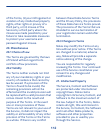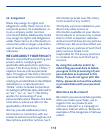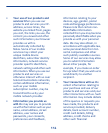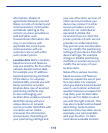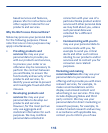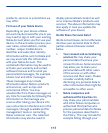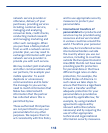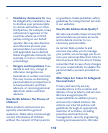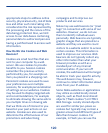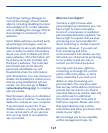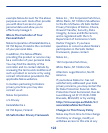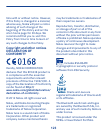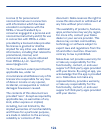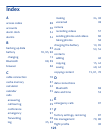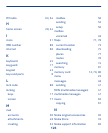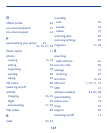
appropriate steps to address online
security, physical security, risk of data
loss and other such risks taking into
consideration the risk represented by
the processing and the nature of the
data being protected. Also, we limit
access to our data bases containing
personal data to authorized persons
having a justified need to access such
information.
How Do We Use Cookies and Web
Beacons?
Cookies are small text files that are
sent to your computer by a web
server. We use cookies to provide
benefits to you. Session cookies
remember the previous activity
performed by you, for example an
item you placed in a shopping cart.
Persistent cookies are used to save
your preferences over multiple
sessions, for example personalization
of settings on our websites. Cookies
may be used to display targeted ads
and recommendations, for example
to eliminate showing the same ads to
you multiple times or showing ads
that we think are of interest to you
based on your past actions on our
website. Cookies are also used to
determine the effectiveness of our
promotions and advertising
campaigns and to improve our
products and services.
Nokia may use web beacons (or “pixel
tags”) in connection with some of our
websites. However, we do not use
them to identify individual users
personally. Web beacons are typically
graphic images that are placed on a
website and they are used to count
visitors to a website and/or to access
certain cookies. This information is
used to improve our services. Web
beacons do not typically collect any
other information than what your
browser provides us with as a
standard part of any internet
communication. If you turn off
cookies, the web beacon will no longer
be able to track your specific activity.
The web beacon may, however,
continue to collect information about
visits from your IP-address.
Some Nokia websites or applications
may utilize so called locally stored
objects, such as Flash local shared
objects ("Flash cookies") or HTML5
Web Storage. Locally stored objects
are used for similar pur-poses as
cookies but typically may contain a
greater amount and different types of
data than browser cookies. For
example, in Flash you can use the
120



